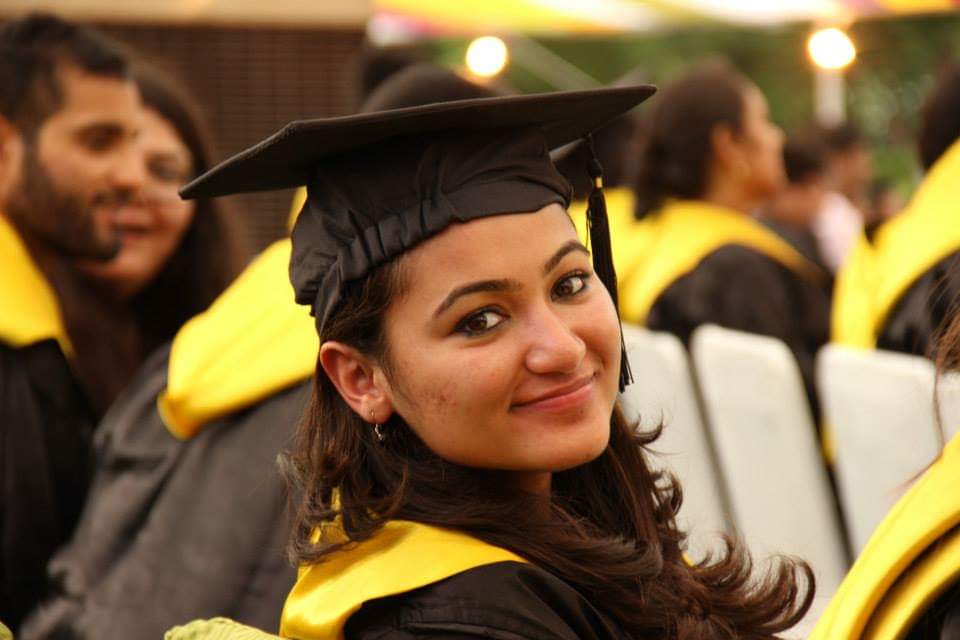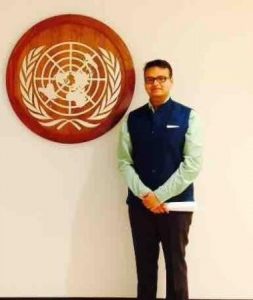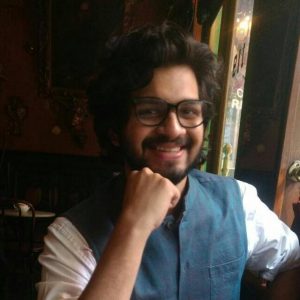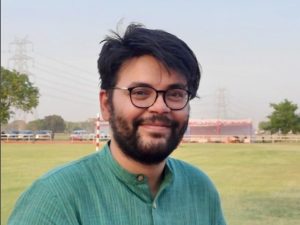How many young lawyers can boast of work that makes the Government sit up, take notice, and even make amends? Yashaswini Mittal caught the Parliament’s attention early on in her career as a human rights lawyer. After graduating from the Class of 2014 at Jindal Global Law School (JGLS), Yashaswini joined the Vidhi Centre for Legal Policy (VCLP) as a Research Fellow. There, she drafted a PIL that went on to be filed in the Supreme Court of India, and that challenged the constitutional validity of 119 provisions under state and central laws that directly discriminated against persons affected by leprosy. She and her team also advocated for and drafted legislation to eliminate such discrimination through the Law Commission of India and an independent member of Parliament. The PIL and associated advocacy eventually led to the Parliament repealing some of the discriminatory provisions that were highlighted under the initiatives, in 2018. Yashaswini considers this her most noteworthy assignment to date, as she continues to fight many battles for human rights around the world.
Yashaswini has always been committed towards working on social justice and human rights issues. She has trained grassroots workers of Leprosy Mission Trust, India on legal routes through which persons affected by leprosy can access their human rights; organized South Asia-based advocacy initiatives on reproductive rights of women and girls through the Center for Reproductive Rights; and drafted advocacy strategies to reduce consumption of tobacco and trans-fat among vulnerable populations, especially children in South Asia through the Campaign for Tobacco-Free Kids. Today, she assists policy-makers and justice and security sector personnel to combat sexual and gender-based violence as a Judicial Affairs Officer with the United Nations Peacekeeping Mission in the Republic of South Sudan.
Yashaswini believes that the guidance, mentorship, and opportunities she received at JGLS have been instrumental in her development as a lawyer. “I got the chance to intern with the United Nations High Commissioner for Refugees and the United Nations Mechanism for International Criminal Tribunals—where I was able to apply my classroom learning to practical realities on the ground. It was a rare opportunity for a young law student like me,” she admits. Such opportunities—although rare—were easily accessible for those at JGLS and Yashaswini made the most of it.
In addition to performing well in academics, Yashaswini was also keen on expanding her co-curricular portfolio and improving her ability to speak in public. She was the founding member of the college debating society, and an active member of the moot court society. Proud to be part of the team that won JGU’s first moot court competition at MDU Rohtak on criminal law, Yashaswini and her team members were also among the top ten participants at the International Criminal Law Moot Court Competition, Leiden University, The Hague, Netherlands. These experiences, she says, were as important as classroom learning, as they helped her to hone her research, writing, and public speaking skills, which she often uses in her work today.
Like many students, Yashaswini decided to gain some experience after graduation, before she went on to pursue an LL.M. “I had spoken to some of my professors at JGLS, who advised me that I would gain more from an LL.M. if I did it after working for a couple of years,” she explains. This decision led her to do a three-year stint at VCLP after graduation, which, she says, was also the result of advice she received from JGU professors, who encouraged her to think outside the box and explore a career in human rights policy and research. At VCLP, Yashaswini advised Indian Government Officials and Members of Parliament on a variety of public health and environmental issues, through a human rights lens. Eventually, she enrolled into the LL.M. program in Global Health Law at Georgetown University Law Center, Washington, DC, as a Global Health Law Scholar.
At Georgetown, Yashaswini participated in the Human Rights Fact-Finding Project and went on a field mission to investigate rights abuses against LGBT+ individuals in the Cooperative Republic of Guyana. She also supplemented her daily expenses by working as a Research Assistant with the O’Neill Institute for National and Global Health Law. These assignments were not only intellectually stimulating for Yashaswini, but also strengthened her belief that field experience was a crucial component of human rights lawyering.
After graduating from Georgetown and struggling to find the right job in an increasingly competitive environment, Yashaswini finally landed her dream job of working on human rights with the UN, in the field. She recommends and encourages young lawyers, especially women interested in human rights to explore work opportunities in the field, either domestically or internationally, to gain practical experience and get out of their comfort zone. While she believes she still has a long way to go before she is “successful”, Yashaswini is content with the way her career is shaping up. In her parting message, she says: “It has been a long and oftentimes difficult journey, filled with self-doubt and failure at every step. However, I could not have come this far without the professors I met and the friends I made at JGLS, who have supported and cheered me on all the way!”Y




